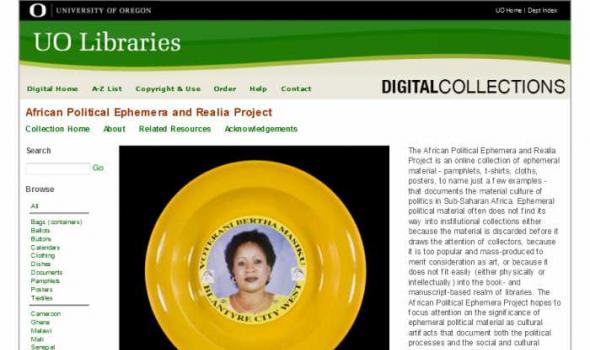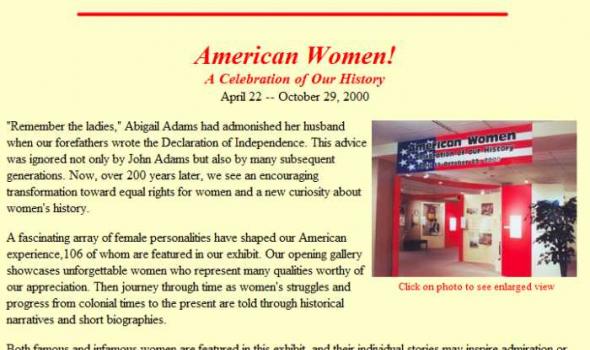Political campaigns
The pamphlets digitized here comprise a very small part of a much larger collection of pamphlets owned by the Labadie Collection on the topic of anarchism. In order to maintain a simple way for the project to continue, the pamphlets were chosen for this project in call number order, rather than by level of intellectual or historical significance. These pamphlets were first cataloged in 1982 with funding from the NEH using local subject headings and call numbers. Later, the pamphlets were added to the University of Michigan Library's online catalog MIRLYN , making them much more widely accessible. It is our intention to eventually digitize the remainder of the pamphlets as time and resources permit. Currently, there are almost 600 pamphlets available online.
Online Campaign Literature Archive Every American election produces thousands of campaign flyers, pamphlets, posters, and bumper stickers, generally called "campaign literature." These documents provide an important record of the campaign, its participants, issues, and tactics. Despite this value, the small size, short production period, and irregular distribution of the documents, all outside the bounds of the traditional publishing industry, put most campaign literature beyond the scope of standard library collections. These materials are seldom saved for posterity.
About This Collection This database comprises sheet music from the McLellan Lincoln Collection at the John Hay Library and includes material written between 1859 and 1923. Music written about Lincoln ranges from popular song to compositions for orchestral performance. Although the focus is on Abraham Lincoln, these pieces offer an important resource for understanding the popular context of Lincoln’s life and presidency and, later, the significance of his legacy in American life. Between 1859 and 1865, popular music about Abraham Lincoln proliferated. Much more than simply suggesting 19th century musical fashions, Lincoln songs are an important source for understanding popular attitudes towards the Illinois candidate, later the 16th President, and his policy agenda.
African Political Ephemera and Realia Project Search Browse The African Political Ephemera and Realia Project is an online collection of ephemeral material - pamphlets, t-shirts, cloths, posters, to name just a few examples - that documents the material culture of politics in Sub-Saharan Africa. Ephemeral political material often does not find its way into institutional collections either because the material is discarded before it draws the attention of collectors, because it is too popular and mass-produced to merit consideration as art, or because it does not fit easily (either physically or intellectually) into the book- and manuscript-based realm of libraries.
History of the Susan H. Douglas Collection The central goal of the project is to preserve, digitize, and catalog all items in the Susan H. Douglas Collection of Political Americana. Acquired from an individual collector between 1957 and 1961, the Douglas collection includes approximately 5,500 items of American political campaign memorabilia and commemorative items dating to between 1789 and 1960. Mrs. Douglas characterized them as: ballots, bric-a-brac (larger three-dimensional objects), broadsides, buttons, cartoons, maps and charts, pamphlets, paper miscellaneous, parade items, posters, prints, ribbons, sheet music, songbooks, textiles, trinkets, and wearing apparel.
April 22 -- October 29, 2000 "Remember the ladies," Abigail Adams had admonished her husband when our forefathers wrote the Declaration of Independence. This advice was ignored not only by John Adams but also by many subsequent generations. Now, over 200 years later, we see an encouraging transformation toward equal rights for women and a new curiosity about women's history. A fascinating array of female personalities have shaped our American experience,106 of whom are featured in our exhibit. Our opening gallery showcases unforgettable women who represent many qualities worthy of our appreciation. Then journey through time as women's struggles and progress from colonial times to the present are told through historical narratives and short biographies.
The National Archives and Records Administration Clifford K. Berryman: Political Cartoonist Extraordinaire In 1886 at the age of 17, Clifford K. Berryman moved from Kentucky to Washington, DC, to work at the U.S. Patent Office, where he used his self-taught talents to draw patent illustrations. He left the Patent Office in 1891 to become a cartoonist’s understudy for the Washington Post. Within five years, Berryman was chief cartoonist, a position he held until 1907 when he became the front-page cartoonist at the Washington Evening Star. Berryman drew political cartoons for the Star until his death in 1949 at the age of 80. Washington political circles embraced Berryman’s cartooning.
The Red Clydeside period During the period between 1910 and 1932 the city of Glasgow was witness to an unparalleled wave of working class protest and political agitation which challenged the forces of capitalism and also, on occasion, directly challenged the state itself. The events and people who shaped this period forged an enduring legacy which still remains part of the political and social fabric of the city to the present day, and which is known quite simply as Red Clydeside. This turbulent period of industrial, social and political upheaval reinforced Glasgow's reputation as the centre of working class struggle in Britain in the early years of the twentieth century.
Posters from the Conservative Party Archive representing election publicity throughout the 20th century up to recent times. Conservative Party Archive: Poster Collection
All images are copyright the Bodleian Library and are free for private use and teaching provided you acknowledge the source. A full copyright statement and a permissions form for all other uses, including publication, are available here. Higher resolution images are available via the Bodleian Library Imaging Services.
The late James McKegney, Professor of Spanish at the University of Waterloo for more than thirty years, passed away in 1981 and left to his heirs one of the most important research collections pertaining to the independence movement in Mexico, 1789-1828. The research materials, compiled between 1965 and 1980, consist of a bibliographic database of more than 11,000 citations and over 1,150 photocopies of pamphlets listed in the database. This database and the accompanying documents are one of the most important archival sources in the world for the study of the political, social and cultural aspects of the independence movement in Mexico.
244 posters and ephemera in both b&w and color Cite as: Philippe Zoummeroff Collection of May 1968, Beinecke Rare Book and Manuscript Library, Yale University The Postwar Avant-Garde and the Culture of Protest, 1945 to 1968 and Beyond Thursday, October 1, 2009 - Saturday, December 19, 2009 Share |





























